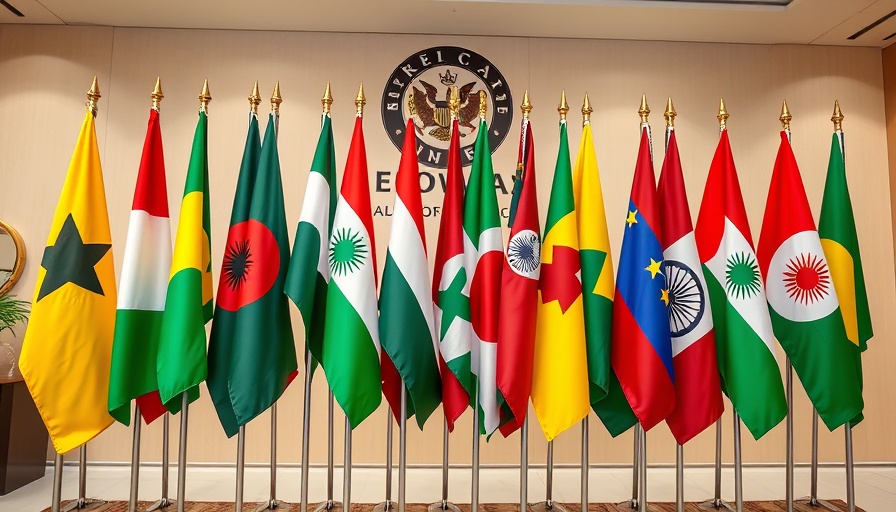
Understanding the ECOWAS Commitment to Police Training
The Economic Community of West African States (ECOWAS) is increasingly recognizing the need for enhanced coordination in its approach to tackling crime and unrest across the region. A recent workshop convened by the Directorate of Peacekeeping and Regional Security aimed to address these critical issues head-on, bringing together senior police and Chamar officers from member states to discuss urgent matters affecting regional security. This gathering is not just a procedural meetup; it represents a proactive step towards creating a unique documented strategy for police forces across diverse and often challenging environments.
In 'ECOWAS Calls for Better Training of Police to Tackle Crime in West Africa', the video explores an urgent initiative aimed at upgrading police capabilities, revealing the pressing reality of security challenges that demand immediate attention.
The Role of ECOWAS Standby Force
Central to the discussions was the ECOWAS Standby Force, a crucial dynamic tool in the broader spectrum of peace and security across the continent. As conflicts and volatility rise—whether they stem from armed conflict, terrorism, or political disarray—the need for a rapid and cohesive police response is more pressing than ever. Each participant left aware that the effectiveness of their response hinges on robust and adaptable training frameworks suitable for the kinds of unique challenges they face at local and regional levels.
Current Threat Landscape in West Africa
West Africa’s security is compromised by a web of challenges requiring tailored responses that can evolve as threats shift. This workshop highlighted the necessity for police forces to pivot from mere combat readiness to a comprehensive approach that encompasses prevention, intelligence-sharing, and inter-agency cooperation. The threats are not merely fleeting; they are increasingly sophisticated, thus mandating a more nuanced understanding and strategic foresight from law enforcement agencies.
Building a Standardized Police Force
A significant focus of the workshop was developing a standardized police roster—essentially a list of vetted, trained, and deployable officers. This kind of roster is envisioned as a vital resource that will allow for quicker mobilization of skilled operatives across the region whenever an incident arises. Such a document not only streamlines deployment but also assures the quality of service delivered by officers placed on the front lines of conflict.
Enhancing National Stability Through Police Training
The conversation extended to a more profound implication: the role of adequately trained police forces in nation-building. Participants argued that empowering local police through rigorous training directly impacts national stability and development, reinforcing the thread of law and order necessary for economic growth and social progress. As ECOWAS enhances institutional capacity, it lays the foundation for sustainable regional cooperation that transcends borders.
A Look Ahead: Future Predictions and Insights
The discussion presented a forward-looking perspective, revealing expectations that evolving threats will continue to require more adaptable training programs. Looking down the line, ECOWAS aims to implement strategies that will allow for iterative learning and integration of best practices drawn from the diverse experiences of member states. This commitment indicates a promising future where regional policing could set new standards not only within West Africa but as a model for the globe.
Conclusion: A Call For Action
In conclusion, the ECOWAS meeting laid bare the necessity of transforming how police training is approached in West Africa, and it is clear that collective action is paramount. The combination of committed professionals and a clear strategic blueprint promises to enhance regional capacity in addressing insecurity effectively. For individuals passionate about the progress of the African continent, staying informed about these developments is crucial.
 Add Row
Add Row  Add
Add 


Write A Comment